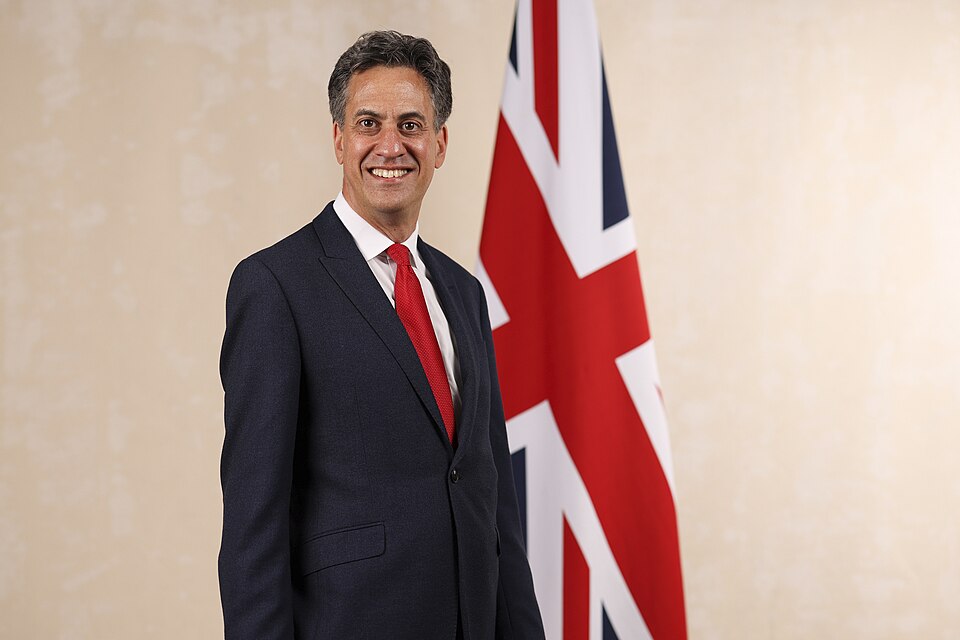
UK Energy Secretary Ed Miliband has urged international cooperation to safeguard global energy supplies, warning of growing risks in a world where energy is increasingly being used as a
geopolitical weapon.
Speaking at the opening of a two-day energy security summit in London, attended by delegates from over 50 countries—including the US and EU—Miliband highlighted the importance of collaboration in the face of mounting threats. These include conflicts in Europe and the Middle East, the US-China trade tensions, cyber warfare, attacks on infrastructure like undersea cables, and extreme weather events.
Miliband acknowledged that fossil fuels still play a role in today’s energy mix but emphasized the UK's commitment to a low-carbon future—not just to combat climate change, but to strengthen national energy security. "For the UK, the future is clean energy," he said.
The summit, co-hosted by the UK and the International Energy Agency (IEA), comes at a time of increased global division, according to IEA chief Fatih Birol. He warned that geopolitical friction is undermining the ability of nations to collectively address energy challenges.
"Rather than working together, countries are often working against each other," Birol said, adding that long-term energy security can only be achieved through global cooperation.
While Birol didn't name names, tensions over energy have been fueled by Russia's invasion of Ukraine, which sent gas prices soaring, and by the US-China trade war. Though Europe initially offset the Russian gas shortfall with imports of US liquefied natural gas (LNG), that supply now looks uncertain amid deteriorating relations with the Trump administration.
Despite the strained relations, the US is participating in the summit—a sign of progress, according to Birol. However, the Trump administration has openly criticized the IEA’s focus on clean energy and its projections of declining demand for oil and gas.
Defending the IEA, Laurence Tubiana of the European Climate Foundation said the agency’s data has been more reliable than that of many fossil fuel companies. "If we're going to build a new energy security framework, we need trustworthy, unbiased information," he said.
During his speech, Miliband also read a letter from King Charles III, who praised the summit for promoting shared learning—especially among nations in the Global South and the Commonwealth—on the path to cleaner and more secure energy systems.
The UK government has set a goal for 95% of the country's electricity to come from clean sources by 2030, up from about 60% today. Miliband told BBC Radio 4’s Today programme that reaching this goal will lead to lower energy bills for British households by the end of the decade. Photo by Lauren Hurley / No 10 Downing Street, Wikimedia commons.




































